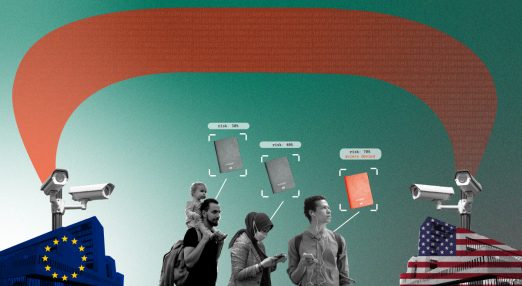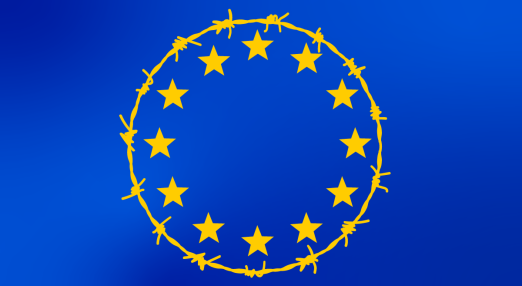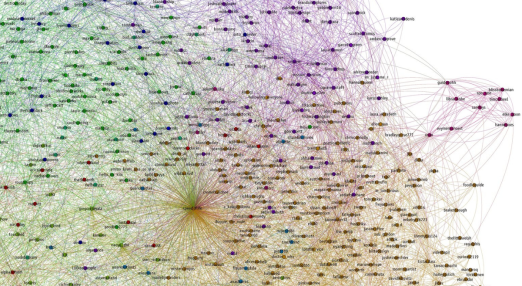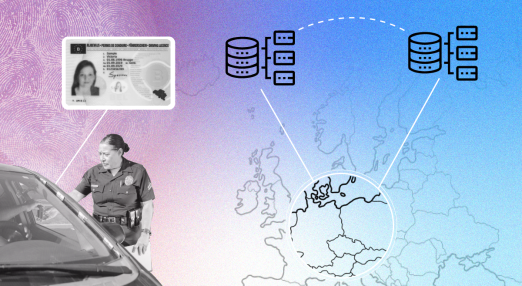Development of EU border police watchlist is “progressing well”
The development of a new watchlist for “identifying connections” between people seeking authorisation to travel to the EU and terrorist or criminal suspects is “progressing well”, according to a Europol report obtained by EDRi member Statewatch.
Filter resources
-

Development of EU border police watchlist is “progressing well”
The development of a new watchlist for “identifying connections” between people seeking authorisation to travel to the EU and terrorist or criminal suspects is “progressing well”, according to a Europol report obtained by EDRi member Statewatch.
Read more
-

Europol data deals with violent police forces need “strong data protection safeguards”
Proposed data-sharing deals between Europol and five states in Central and South America needs explicit safeguards if they are to uphold fundamental rights, the European Data Protection Supervisor said at the beginning of May. Police forces in those states have brutal records of violence and torture.
Read more
-

Open letter: e-Evidence package lacks appropriate safeguards, EU Parliament must reject it
Civil society, doctors, lawyers and journalists associations and internet service providers are calling on MEPs to reject the so-called “e-Evidence” package during the plenary vote on June 13 because the proposed system of cross-border access to data in criminal matters would severely undermine fundamental rights.
Read more
-

USA border plan requires “continuous and systematic” transfers of biometric data
Last year, it was revealed that the USA planned to launch Enhanced Border Security Partnerships (EBSPs) with other states around the world, seemingly targeting the EU, UK and Israel first. These would involve “continuous and systematic” transfers of biometric data to the USA for the purposes of immigration and asylum vetting, says a recent Council of the EU document obtained by Statewatch.
Read more
-

€1.2 billion GDPR fine for Meta over US mass surveillance
Today, a decade-long (2013 - 2023) case on Meta's involvement in US mass surveillance has led to a first direct decision. Meta must stop any further transfers of European personal data to the United States, given that Meta is subject to US surveillance laws (like FISA 702). The European Data Protection Board (EDPB) had largely overturned the Irish Data Protection Commission's (DPC) decision, insisting on a record fine and that previously transferred data must be brought back to the EU.
Read more
-

EU plan for international border data-sharing system “should not proceed”
The European Commission’s plan for a “security-related information sharing system between frontline officers in the EU and key partner countries” should be scrapped, says a paper signed by 10 organisations, including Statewatch, who warn that it may aid political repression and underpin human rights violations.
Read more
-

“Social media profiles and phone contacts” used as proof of identity for deportations
Thirteen non-EU countries sometimes accept “social media profiles and phone contacts” as evidence of identity for the purpose of deportations, according to an internal European Commission assessment of third country cooperation on readmission.
Read more
-

Position Paper: EU’s proposed health data regulation ignores patients’ privacy rights
EDRi’s new position paper outlines how the European Commission’s proposal for a European Health Data Space, in an attempt to make use of people’s health data, would sabotage the rights of patients to make decisions about their private medical information.
Read more
-

e-Evidence compromise blows a hole in fundamental rights safeguards
In December 2022, the Council and the European Parliament agreed on a final compromise text on the so-called ‘e-Evidence’ proposals. With major concessions given to the Member States’ position, the results of these trilogues negotiations are of bad omen for people’s rights and freedoms.
Read more
-

“e-Evidence” trilogues: what’s left of fundamental rights safeguards?
In an open letter addressed to policymakers, an EDRi-led coalition of digital rights, lawyers, journalists, media organisations and internet service providers associations are ringing the alarm bell. We warn against the foreseen framework that could seriously endanger freedom of expression, privacy rights and the right to a fair trial.
Read more
-

Advocate General recklessly calls for watering down privacy protections
On 27 October, the Advocate General (AG) Szpunar of the Court of Justice of the European Union (CJEU) released his opinion on the French ‘HADOPI’ system against online copyright infringements. The case has potentially important implications for the ongoing political debate on data retention by private companies for access by law enforcement authorities.
Read more
-

Position Paper: New EU law amplifies risks of state over-reach and mass surveillance
The EDRi network published its position paper on the proposed Regulation on automated data exchange for police cooperation (“Prüm II”). The European Commission’s Prüm II proposal fails to put in place vital safeguards designed to protect all of us from state overreach and authoritarian mass surveillance practices. In the worst case scenario, we may no longer be able to walk freely on our streets as the new law would treat large parts of the population as a criminal before proven otherwise.
Read more
